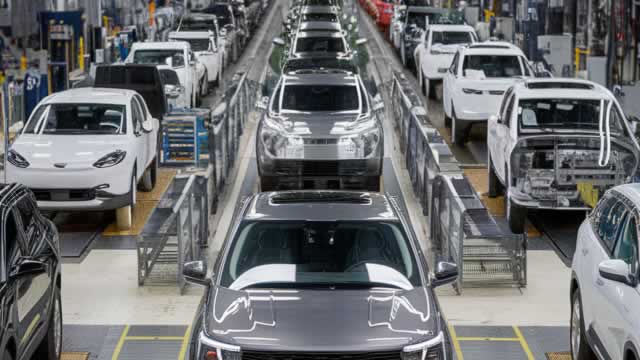The Impact of New Tariffs on the Electric Vehicle Industry: A Detailed Analysis
The electric vehicle (EV) industry has been experiencing exponential growth in recent years, driven by advancements in technology, increasing environmental consciousness, and government incentives. However, this growth may be disrupted by the newly imposed tariffs on imported components, particularly batteries and raw materials, which are essential for manufacturing EVs.
Impact on the EV Industry in the United States
U.S. automakers, such as Tesla, General Motors, and Ford, have been major beneficiaries of the growing EV market. However, the new tariffs on imported batteries and raw materials, primarily from China, could significantly increase the cost of production for these companies. According to a report by the International Energy Agency (IEA), the tariffs could raise the cost of an EV battery by up to 12%.
Moreover, the tariffs could result in supply chain disruptions, as many EV components are sourced from foreign suppliers. This could lead to production delays and potential shortages, which could negatively impact sales and market share for U.S. automakers.
Impact on Consumers
The new tariffs could also result in higher prices for EVs for consumers. According to a report by the Center for Automotive Research, the tariffs could add up to $6,000 to the cost of an EV. This could make EVs less affordable for some consumers, especially those on a tight budget.
Furthermore, the tariffs could lead to longer wait times for EV deliveries, as production is disrupted due to supply chain challenges. This could be particularly problematic for consumers who are looking to make the switch to an EV due to environmental concerns or to save on fuel costs.
Impact on the World
The new tariffs on EV components could have far-reaching implications for the global EV industry. China, which is the world’s largest producer of EV batteries, could be particularly impacted. According to a report by BloombergNEF, the tariffs could lead to a decline in China’s EV battery exports, which could result in a loss of revenue and potential job losses.
Furthermore, the tariffs could slow down the global transition to EVs, as other countries may follow suit with similar protectionist measures. This could result in a delay in the reduction of greenhouse gas emissions and the achievement of climate goals.
Conclusion
In conclusion, the newly imposed tariffs on imported EV components could significantly impact the electric vehicle industry, particularly in the United States. The increased production costs and potential supply chain disruptions could result in higher prices for consumers and production delays for automakers. Moreover, the tariffs could have far-reaching implications for the global EV industry, particularly in China, and could slow down the transition to EVs.
It is essential that governments and industry stakeholders work together to find alternative solutions to protect the EV industry and promote the transition to cleaner, more sustainable transportation. This could include investing in domestic production of EV components, increasing collaboration between countries to ensure a stable supply chain, and exploring alternative energy sources for battery production.
- IEA. (2022). Electric vehicles: Global sales, stocks and production.
- Center for Automotive Research. (2022). Impact of U.S. tariffs on electric vehicles.
- BloombergNEF. (2022). China’s lithium-ion battery industry outlook.





